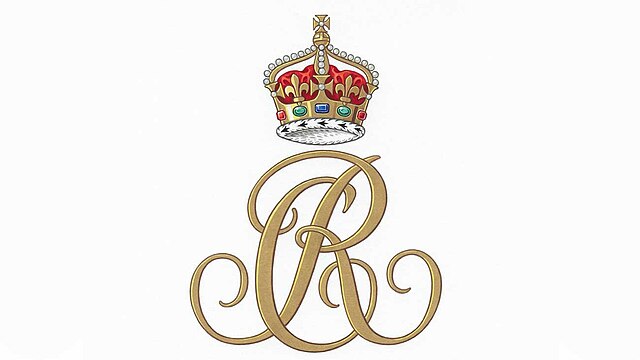An EU lawyer has argued that Apple should pay €13 billion in back taxes to the Irish government. This comes after a ruling allowing Apple to avoid paying this amount was overturned. The lawyer, Advocate General Giovanni Pitruzzella, stated that the previous ruling in Apple’s favor had failed to assess certain methodological errors that affected the tax rulings. Although this legal opinion is not final, the court tends to agree with such opinions in most cases.
In response to this development, an Apple spokesman reiterated that the initial ruling had made it clear that the company had not received any selective advantage or state aid. The European Commission had previously found that Apple had received unfair preferential treatment from the Irish government, allowing it to pay a much lower rate of tax than other companies. This case has become a symbol of the Commission’s efforts to address what it sees as significant tax avoidance by multinational corporations.
The Irish government has argued that Apple should not have to repay the back taxes, stating that the benefits of having the company in Ireland outweigh the loss of tax revenue. Ireland, with one of the lowest corporate tax rates in the EU, is the base for Apple’s operations in Europe, the Middle East, and Africa. While corporation tax rates are set nationally and not subject to the EU’s jurisdiction, the trade bloc has extensive powers to regulate state aid, and in this case, it argued that Ireland was granting an unfair subsidy to Apple.
The lower court had previously ruled that the European Commission’s decision for Apple to pay back taxes was legally flawed and should be set aside. However, with this latest development, that ruling itself could be overturned. This ongoing saga reflects the complex and contentious issues surrounding multinational corporations, tax avoidance, and the role of the EU in regulating state aid.
Original news source: Apple should pay €13bn Irish tax, argues EU lawyer (BBC)
Listen
Slow
Normal
Fast
Group or Classroom Activities
Warm-up Activities:
– News Reporter Role-play
Instructions: Divide the class into pairs. One student takes on the role of a news reporter, while the other becomes an expert on EU tax laws or an Apple executive. The reporter interviews the expert about the recent developments regarding Apple’s tax situation, asking about the implications and opinions on the matter. Encourage students to use vocabulary and concepts related to taxation, law, and economics.
– Opinion Spectrum
Instructions: Create a line in the classroom representing a spectrum of opinions about whether multinational corporations like Apple should pay more taxes in the EU. One end of the line is “strongly agree,” the other end is “strongly disagree,” with the middle being neutral. Students place themselves along the line based on their personal opinion. Then, select individuals from different points on the spectrum to explain their position.
– Synonym Challenge
Instructions: Write down several key terms from the article (e.g., “back taxes,” “state aid,” “multinational corporation,” “tax avoidance”). Students work in small groups to brainstorm synonyms or related terms for each word or phrase. This activity will expand their vocabulary and help them understand the nuances of tax-related language.
– Future Predictions
Instructions: After discussing the article, ask students to write down their predictions about the outcome of the case and the future of tax regulation for multinational corporations in the EU. Have them share their predictions with a partner and discuss the potential global economic and political implications.
– Mind Map
Instructions: On the board, write “Apple’s €13 billion back taxes case” in the center. Students work in groups to create a mind map around this central idea, including branches for legal opinions, the role of the EU, potential impacts on Apple and Ireland, and broader issues of corporate taxation. This visual activity helps students organize and synthesize information from the article.
Comprehension Questions:
1. How much does the EU lawyer argue Apple should pay in back taxes to the Irish government?
2. What did Advocate General Giovanni Pitruzzella say about the previous ruling that was in Apple’s favor?
3. Is the legal opinion provided by the EU lawyer final?
4. What was Apple’s response to the Advocate General’s opinion?
5. What had the European Commission previously found regarding Apple’s tax treatment by the Irish government?
6. What is the Irish government’s stance on Apple repaying the back taxes?
7. What is the significance of Ireland’s corporate tax rate in relation to Apple’s operations?
8. What does this case symbolize in terms of the European Commission’s efforts?
Go to answers ⇩
Listen and Fill in the Gaps:
An EU lawyer has argued that Apple should pay €13 billion in back (1)______ to the Irish government. This comes after a ruling allowing Apple to avoid paying this amount was overturned. The lawyer, Advocate General Giovanni Pitruzzella, stated that the previous ruling in Apple’s favor had failed to assess certain methodological errors that (2)______ the tax rulings. Although this legal (3)______ is not final, the (4)______ tends to agree with such opinions in most cases.
In response to this development, an (5)______ spokesman reiterated that the initial ruling had made it clear that the company had not received any selective (6)______ or state aid. The (7)______ Commission had previously found that Apple had received unfair preferential treatment from the Irish government, allowing it to pay a much lower rate of tax than other companies. This case has become a symbol of the Commission’s efforts to address what it sees as significant tax (8)______ by multinational corporations.
The Irish (9)______ has (10)______ that Apple should not have to repay the back taxes, stating that the benefits of having the company in Ireland outweigh the loss of tax revenue. Ireland, with one of the lowest corporate tax rates in the EU, is the base for Apple’s operations in Europe, the Middle East, and Africa. While corporation tax rates are set nationally and not subject to the EU’s (11)______, the trade bloc has (12)______ powers to regulate state aid, and in this case, it argued that Ireland was granting an unfair subsidy to Apple.
The (13)______ court had previously (14)______ that the European Commission’s decision for Apple to pay back taxes was legally flawed and should be set aside. However, with this (15)______ development, that ruling itself could be (16)______. This ongoing saga reflects the complex and contentious issues surrounding multinational corporations, tax avoidance, and the role of the EU in regulating state aid.
Go to answers ⇩
Discussion Questions:
Students can ask a partner these questions, or discuss them as a group.
1. What is your understanding of tax avoidance and how does it differ from tax evasion?
2. How would you feel if a large corporation in your country was found to be paying significantly less tax than smaller, local businesses?
3. Do you think it’s fair for multinational corporations to use loopholes to minimize their tax liabilities? Why or why not?
4. What are the potential benefits and drawbacks for a country offering low corporate tax rates to attract international companies?
5. How do you think the presence of a major corporation like Apple affects the local economy and job market in a country like Ireland?
6. Do you believe that the benefits of having a company like Apple in Ireland outweigh the loss of tax revenue? Why or why not?
7. What is state aid, and why do you think the EU regulates it among its member states?
8. How would you feel if your government decided to support a multinational corporation at the potential expense of receiving tax revenue?
9. Do you think the EU should have the power to intervene in tax matters, which are traditionally a national competence? Why or why not?
10. What do you think are the ethical implications of tax rulings that favor large corporations over smaller entities?
11. In your opinion, should there be a global standard for corporate taxation to prevent companies from shopping for favorable tax environments?
12. How do you think the public in your country would react to a situation similar to Apple’s in Ireland?
13. Do you think that companies have a moral obligation to pay a fair share of taxes, or is their only obligation to their shareholders? Why?
14. How do you perceive the role of the European Commission in ensuring fair competition within the EU’s single market?
15. Do you believe that cases like Apple’s tax situation can lead to meaningful changes in international tax laws? Why or why not?
Individual Activities
Vocabulary Meanings:
Match each word to its meaning.
Words:
1. Apple
2. EU
3. Advocate
4. Commission
5. Ireland
6. Tax
7. Multinational
8. Ruling
Meanings:
(a) An organization that makes decisions and enforces rules for the European Union
(b) A company that designs and sells consumer electronics
(c) A large company that operates in multiple countries
(d) A person who publicly supports or recommends a particular cause or policy
(e) An official decision or statement made by a judge or court
(f) Money that people and businesses have to pay to the government
(g) A country in Europe
(h) A group of people who are chosen to make rules, laws, or decisions
Go to answers ⇩
Multiple Choice Questions:
1. What is the amount of back taxes that the EU lawyer argues Apple should pay to the Irish government?
(a) €5 million
(b) €20 billion
(c) €13 billion
(d) €8 billion
2. What is the name of the lawyer who argued that Apple should pay back taxes to the Irish government?
(a) Advocate General Giovanni Pitruzzella
(b) Attorney General Maria Rossi
(c) Advocate General Antonio Bianchi
(d) Attorney General Sofia Romano
3. What did the European Commission find regarding Apple’s tax treatment by the Irish government?
(a) Apple had paid the correct amount of taxes
(b) Apple had overpaid taxes
(c) Apple had received unfair preferential treatment
(d) Apple had not paid any taxes
4. What is the basis for Apple’s operations in Europe, the Middle East, and Africa?
(a) Germany
(b) Ireland
(c) France
(d) Spain
5. What is the argument of the Irish government regarding Apple’s back taxes?
(a) Apple should immediately repay the full amount
(b) Apple should pay even more in back taxes
(c) The Irish government has not made any statement regarding Apple’s back taxes
(d) The benefits of having the company in Ireland outweigh the loss of tax revenue
6. What is the main issue addressed by the European Commission in this case?
(a) Unfair treatment of small businesses
(b) Significant tax avoidance by multinational corporations
(c) Environmental regulations
(d) Labor laws
7. What is the main reason for the lower corporate tax rates in Ireland compared to other EU countries?
(a) The EU’s jurisdiction
(b) The European Commission’s regulations
(c) The Irish government’s unfair subsidies
(d) Ireland’s national tax policy
8. What was the ruling of the lower court regarding the European Commission’s decision for Apple to pay back taxes?
(a) It was legally flawed and should be set aside
(b) It was fair and just
(c) It was overturned by the EU court
(d) It was not addressed in the article
Go to answers ⇩
True or False Questions:
1. The lower court had previously ruled that the European Commission’s decision for Apple to pay back taxes was legally flawed and should be set aside.
2. The Irish government has argued that Apple should not have to repay the back taxes, stating that the benefits of having the company in Ireland outweigh the loss of tax revenue.
3. The court tends to disagree with the legal opinions of Advocate General Giovanni Pitruzzella in most cases.
4. The previous ruling in Apple’s favor was overturned due to methodological errors that affected the tax rulings.
5. Ireland, with one of the highest corporate tax rates in the EU, is not the base for Apple’s operations in Europe, the Middle East, and Africa.
6. An Apple spokesman reiterated that the initial ruling had made it clear that the company had not received any selective advantage or state aid.
7. The European Commission had previously found that Apple had not received unfair preferential treatment from the Irish government, allowing it to pay a much lower rate of tax than other companies.
8. An EU lawyer has argued that Apple should not pay €13 billion in back taxes to the Irish government.
Go to answers ⇩
Write a Summary:
Write a summary of this news article in two sentences.
Check your writing now with the best free AI for English writing!
Writing Questions:
Answer the following questions. Write as much as you can for each answer.
Check your answers with our free English writing assistant!
1. What argument did EU lawyer Advocate General Giovanni Pitruzzella present regarding Apple’s back taxes to the Irish government?
2. How has Apple responded to the recent legal opinion suggesting it should pay €13 billion in back taxes?
3. What was the European Commission’s finding in relation to Apple’s tax arrangements with the Irish government?
4. Why does the Irish government believe Apple should not have to repay the back taxes?
5. What are the broader implications of this case for multinational corporations and the EU’s role in regulating state aid?
Answers
Comprehension Question Answers:
1. How much does the EU lawyer argue Apple should pay in back taxes to the Irish government?
The EU lawyer argues that Apple should pay €13 billion in back taxes to the Irish government.
2. What did Advocate General Giovanni Pitruzzella say about the previous ruling that was in Apple’s favor?
Advocate General Giovanni Pitruzzella said that the previous ruling in Apple’s favor had failed to assess certain methodological errors that affected the tax rulings.
3. Is the legal opinion provided by the EU lawyer final?
No, the legal opinion provided by the EU lawyer is not final, but the court tends to agree with such opinions in most cases.
4. What was Apple’s response to the Advocate General’s opinion?
Apple’s response was that the initial ruling had made it clear that the company had not received any selective advantage or state aid.
5. What had the European Commission previously found regarding Apple’s tax treatment by the Irish government?
The European Commission had previously found that Apple had received unfair preferential treatment from the Irish government, allowing it to pay a much lower rate of tax than other companies.
6. What is the Irish government’s stance on Apple repaying the back taxes?
The Irish government has argued that Apple should not have to repay the back taxes, stating that the benefits of having the company in Ireland outweigh the loss of tax revenue.
7. What is the significance of Ireland’s corporate tax rate in relation to Apple’s operations?
Ireland, with one of the lowest corporate tax rates in the EU, is the base for Apple’s operations in Europe, the Middle East, and Africa.
8. What does this case symbolize in terms of the European Commission’s efforts?
This case symbolizes the European Commission’s efforts to address what it sees as significant tax avoidance by multinational corporations.
Go back to questions ⇧
Listen and Fill in the Gaps Answers:
(1) taxes
(2) affected
(3) opinion
(4) court
(5) Apple
(6) advantage
(7) European
(8) avoidance
(9) government
(10) argued
(11) jurisdiction
(12) extensive
(13) lower
(14) ruled
(15) latest
(16) overturned
Go back to questions ⇧
Vocabulary Meanings Answers:
1. Apple
Answer: (d) A person who publicly supports or recommends a particular cause or policy
2. EU
Answer: (a) An organization that makes decisions and enforces rules for the European Union
3. Advocate
Answer: (c) A large company that operates in multiple countries
4. Commission
Answer: (e) An official decision or statement made by a judge or court
5. Ireland
Answer: (g) A country in Europe
6. Tax
Answer: (f) Money that people and businesses have to pay to the government
7. Multinational
Answer: (h) A group of people who are chosen to make rules, laws, or decisions
8. Ruling
Answer: (b) A company that designs and sells consumer electronics
Go back to questions ⇧
Multiple Choice Answers:
1. What is the amount of back taxes that the EU lawyer argues Apple should pay to the Irish government?
Answer: (c) €13 billion
2. What is the name of the lawyer who argued that Apple should pay back taxes to the Irish government?
Answer: (a) Advocate General Giovanni Pitruzzella
3. What did the European Commission find regarding Apple’s tax treatment by the Irish government?
Answer: (c) Apple had received unfair preferential treatment
4. What is the basis for Apple’s operations in Europe, the Middle East, and Africa?
Answer: (b) Ireland
5. What is the argument of the Irish government regarding Apple’s back taxes?
Answer: (d) The benefits of having the company in Ireland outweigh the loss of tax revenue
6. What is the main issue addressed by the European Commission in this case?
Answer: (b) Significant tax avoidance by multinational corporations
7. What is the main reason for the lower corporate tax rates in Ireland compared to other EU countries?
Answer: (d) Ireland’s national tax policy
8. What was the ruling of the lower court regarding the European Commission’s decision for Apple to pay back taxes?
Answer: (a) It was legally flawed and should be set aside
Go back to questions ⇧
True or False Answers:
1. The lower court had previously ruled that the European Commission’s decision for Apple to pay back taxes was legally flawed and should be set aside. (Answer: True)
2. The Irish government has argued that Apple should not have to repay the back taxes, stating that the benefits of having the company in Ireland outweigh the loss of tax revenue. (Answer: True)
3. The court tends to disagree with the legal opinions of Advocate General Giovanni Pitruzzella in most cases. (Answer: False)
4. The previous ruling in Apple’s favor was overturned due to methodological errors that affected the tax rulings. (Answer: True)
5. Ireland, with one of the highest corporate tax rates in the EU, is not the base for Apple’s operations in Europe, the Middle East, and Africa. (Answer: False)
6. An Apple spokesman reiterated that the initial ruling had made it clear that the company had not received any selective advantage or state aid. (Answer: True)
7. The European Commission had previously found that Apple had not received unfair preferential treatment from the Irish government, allowing it to pay a much lower rate of tax than other companies. (Answer: False)
8. An EU lawyer has argued that Apple should not pay €13 billion in back taxes to the Irish government. (Answer: False)
Go back to questions ⇧















